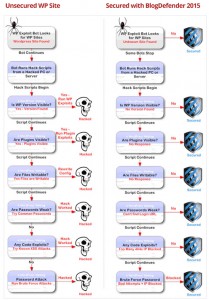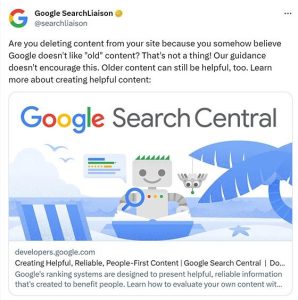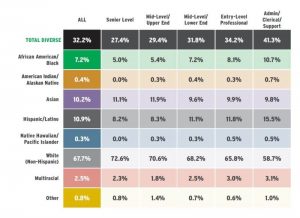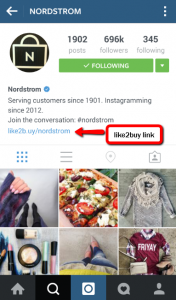Facebook sees Messenger, their Facebook-connected instant messaging and texting app, as playing a significant role in the future of the company. Facebook itself has 2.3 billion monthly active users. Facebook Messenger has more than 1.3 billion active users. Many of those users use the platform as a primary communication channel. Between the two, Facebook can be an absolute powerhouse of a platform for social sellers.

Facebook has long been telegraphing their intent to make Messenger a more significant part of their overall platform. It was back in 2016 that the company officially announced the Facebook Messenger Platform, which gave businesses greater access to tools and automation options. Since that time, we have seen a steady ramp-up in the number of companies and a wide variety of beneficial uses that the platform represents for businesses.
An open messenger platform presents a lot of potential for companies that want to further leverage social selling and social media automation within their broader marketing strategies. The announcement to open up the platform for business and marketing purposes raised a few eyebrows. People worried that Facebook was exposing the app’s massive user base to a system that could potentially be abused. Facebook responded to these worries by putting strict use cases and limitations on how the platform works.
Facebook sees Messenger as a possible way to bridge the gap between businesses and customers. They hope it could become an entirely new communication channel for companies with tech-savvy customers. With so many Messenger users already using the platform regularly and integrating it deeply into their everyday lives, it makes sense that Facebook would want to monetize the platform.
For social sellers, the benefits of Messenger are apparent. When people are already using it, and your target audience is hanging out there, it makes sense that social sellers would want to leverage it for connecting and building genuine relationships with prospects.
At SocialSellinator, we have written extensively about how to integrate automation into your processes smartly. While we don’t advocate for too much automation because we want to focus on real conversations and building genuine relationships, there are certain cases where automating processes make for a better experience for both you and your prospects.
Facebook Messenger simply has too much potential for beneficial automation for it to go overlooked. Using Messenger Bots, you can automate interactions and give your prospects access to information without having to wait for you to respond. There are many uses for Messenger bots that could potentially benefit social sellers. But before we dive into that, let’s examine what a bot is within this context.
What is a Bot, Anyway?
In the general sense, a “bot” is a term used to describe any piece of software that automates a specific task. Chatbots, in the context of Facebook Messenger, automate conversations with prospects. While it is impossible to automate an entire fulfilling conversation with a potential customer completely, they can serve as an excellent way to kick off the conversation and collect a little bit of information from an interested party.

- quinntheislander / Pixabay
Facebook creates its Facebook Messenger bots with Facebook’s Wit.ai Bot Engine system. Bots using this system can parse and understand typical interactions with prospects and learn from them over time. That means that any bot that you create will get “smarter” and more effective every time that it interacts with a prospect.
This usage of artificial intelligence not only makes it easy for businesses to design chatbots but also allows them to build out new functionalities over time that make them more useful. Most Messenger bots have several different uses and branches that a conversation can go down, depending on what the prospect needs.
We’ll dive deeper into how Messenger Bots work a bit later. First, let’s look at how conversations with Messenger bots start.
How Do Messenger Bot Interactions Start?
When Facebook embraced bots for their Messenger app, one of the first questions that concerned parties had was how those conversations would start. If Facebook was going to allow businesses to start sending mass automated communications and conducting spam in the same way that companies do through email, many worried that Messenger would lose its favor.
However, things didn’t go that way. Facebook put some pretty strict restrictions on how conversations with companies can start through the platform. Businesses can’t just decide to start sending automated marketing messages to users. There has to be an initial interaction that grants the business permission to start sending messages. Some of the common ways that Messenger bot conversations start include:
Messenger Links
If you have a page for your business on Facebook, users can choose to contact your business through Messenger by clicking a button on your page. When they click that link, a new conversation will open up in Messenger. Your bot presents the user with the messaging and options that you set to be your welcome message for first interactions. Messenger bots know when they have interacted with an individual through the platform previously.
Customer Matching
There is one way in which businesses can reach out to customers through Facebook Messenger without the customer taking action, and that is through customer matching. For companies that have collected phone numbers for existing customers or prospects and have existing permission to reach out to them, you can use the customer matching feature on Facebook to reach out to those customers. When you do reach out, customers will be prompted to opt-in to the conversation at the end of your first message. Even in these examples, customers still control who they can receive notifications from.
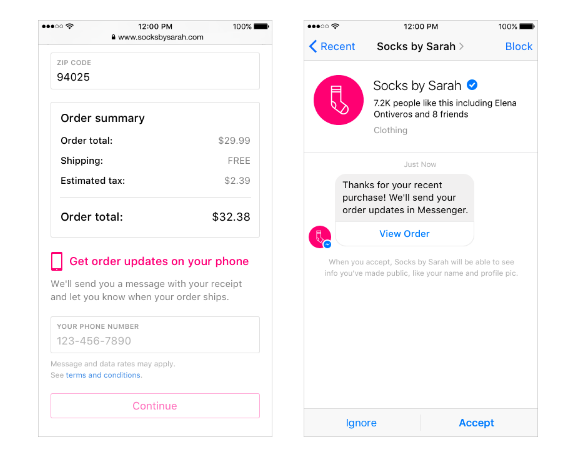
Image Source: Facebook
Messenger Codes
Messenger codes are unique images that Facebook can use to open up conversations with prospects. If you are familiar with QR codes or Snapchat codes, the concept here is the same. The image contains visual cues that act like a barcode that can be scanned by smart devices, directly opening up the conversation. When scanning the code, the user is redirected to the Messenger app on the device.
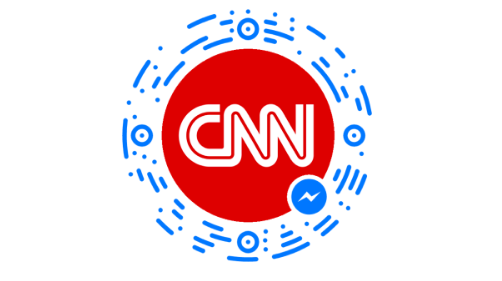
Image Source: Facebook
Messenger Buttons
Facebook also made it easy for companies to embed Facebook Messenger buttons on their website and other web properties to encourage conversations with the company. For social sellers, these buttons would be a beneficial addition to your website. It’s less hassle for users to start a new Messenger conversation than it is for them to reach out through email in most cases.
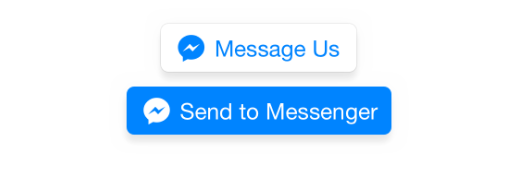
Image Source: Facebook
In these examples, if you haven’t implemented a bot, you’ll just receive a standard Messenger message and conduct a by-hand conversation. In those cases, you will want to ensure that you continually monitor the channel for new messages. If you do have a bot, the bot can walk the prospect through the initial steps in the conversation.
What Are The Benefits of Messenger Bots?
Using Messenger chatbots can provide several benefits to social sellers and businesses. In many ways, they are more effective than handling those interactions by hand. They allow you to automate the portions of conversations that often look the same.
- 24/7 Availability. We can’t be there to answer our Messenger messages all the time. Even if you employ customer service reps, if they are handling new interactions by hand, then there will still be delays. Chatbots are always available and able to deliver any information, collect data, or direct customers in any way that you have set up the bot.
- Information collection. Messenger bots are excellent tools for collecting information from customers. It’s a process that social sellers always have to go through when meeting prospects and chatbots allow you to simplify the process. Using Messenger chatbots, you can prompt the customer for information and store it in your chosen database or spreadsheet using the detailed API.
- Improve responsiveness. When a customer messages an account that uses a chatbot, the bot replies immediately. There is no delay. Prospects never have to wait for hours to hear back from you. This instant reaction allows you to catch them at the peak of their interest and establish a better connection. For social sellers that are focusing on delivering value to prospects, it’s hard to shy away from how much weight a bot could add in that department.
- Low maintenance costs. Chatbots don’t cost anything to maintain outside of what you pay any developers to work on the project. Once a chatbot is set up, it should then run without issue unless there are significant changes to the platform. It costs nothing to continue using a chatbot once installed on your account.
- Access to a vast user base. With more than 1.3 billion users, you can rest assured that your target audience is on Facebook Messenger. Access to an extensive user base that uses the platform for chatting with family and friends is beneficial and makes for impactful but straightforward interactions.
- Branches catered to individuals. Conversational extensions can be built into chatbots based on their answers to your questions. Whether they need help with something, access to information, or would like to buy something from you — you can build it reliably into your chatbot and only take over with manual conversation when it makes sense.
- Improve over time with optimization. Over time, you’ll learn what works and what doesn’t concerning your Messenger chatbot. You can then use that information to run split tests and optimize your strategies to improve ROI.
- A more personal connection. Most people, even today, have had very few interactions with businesses through Facebook Messenger. The typical use of the platform is chatting with family and friends. Therefore, the platform has high levels of engagement, and there is a good chance that the recipient reads your messages engages with you.
There are many advantages to messenger bots for social sellers. Now that we’ve covered how they could potentially impact your business let’s dive into some examples that show how various companies have used Messenger chatbots to their advantage.
Examples of Messenger Chatbots
It’s tough to fully envision how a chatbot could fit into your business without seeing some examples of them in action first. Chatbots, when deployed with a little creativity, can automate sales funnels, help connect customers to information, and in many ways, replace sales reps.
Here are some examples of companies using chatbots in useful and exciting ways to help get the gears turning on how your business could use them:
Example #1 – Swelly
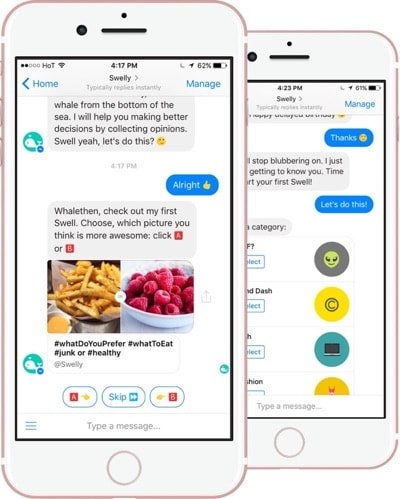
Swelly was one of the most popular Facebook Messenger chatbots in the early days of the program. Swelly allows users to pick one of two options and vote with the general public. The system also lets users see what people around the world vote for.
In total, more than one million have used Swelly. The vital viral component of the bot made it a quick hit. While this isn’t a strict business example, we wanted to show it because it shows how far a little creativity can take you when it comes to chatbots; if you’d like to try it out, click here.
Example #2 – 1-800-Flowers
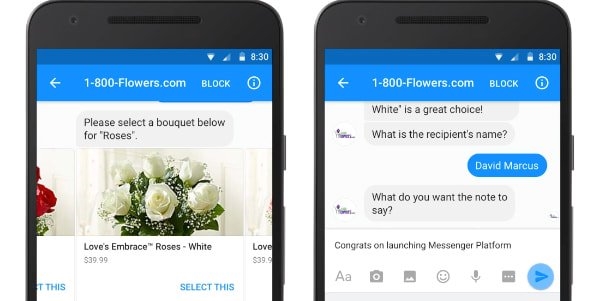
Another one of the more famous chatbots on Facebook Messenger comes from 1800Flowers. They are a flower delivery company and created a chatbot to make a full-featured engagement channel with their customers. Users can order flowers and have them delivered wherever they want, directly from inside the chatbot platform. Additionally, the customer can request to speak with a real human representative and is redirected quickly.
Example #3 – HealthTap
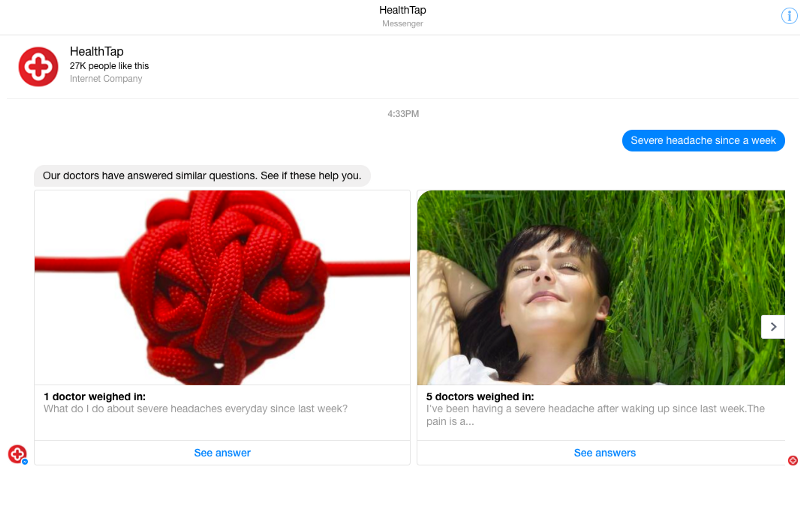
HealthTap is an excellent example of social sellers. HealthTap has utilized Facebook Messenger chatbots almost strictly as an information delivery tool. Users can ask any question that they would like to the HealthTap bot, which then answers your health questions with answers from physicians around the world at no cost.
The bot allows you to browse through answers to similar questions. With over 100,000 physicians in different specialties, there is almost no answer that the bot can not deliver that relates to health. It’s a simple but effective way to provide value to their customers and build relationships in the process.
Smart Automation Builds Relationships
Creating smart, automated conversations using Facebook Messenger chatbots can help social sellers to collect more information, be more responsive, and provide a better overall experience to their prospects and customers. While you will always have to engage in genuine conversations with your prospects, a chatbot can be a huge help.
Originally published here.
Digital & Social Articles on Business 2 Community
(17)

